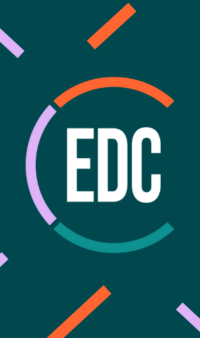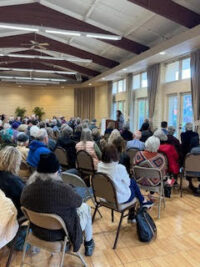The Sonoma County Board of Supervisors is currently considering several plans for the development of the Sonoma County Developmental Center. However, The Commission on Human Rights (CHR) feels that stakeholders haven’t had enough time to evaluate and weigh options that include sufficient input from underrepresented and marginalized communities. The current four proposals leave out key elements for the successful development of this vital undertaking. Therefore, the CHR strongly requests the following:
An immediate request for extension of the feedback and proposal development timeline. The extension will allow for more diverse and inclusive outreach and engagement that will adequately incorporate the voices of marginalized and underserved communities. And, the development of a truly equitable, diverse and inclusive proposal that focuses on:
○ Indigenous people. Long before the creation of the SDC, this land belonged to and was taken from our Native American relatives. Nowhere in the current proposals are Indigenous communities mentioned. Future proposals should consider Indigenous land rights, cultural preservation, and they must be equally and fairly represented in this process with respect to their stewardship of these lands for many centuries.
○ People with Developmental Disabilities. This land was gifted to the state of California with the main goal of serving people with developmental disabilities. We ask that future proposals honor the intentions of the family that gifted this land. Future housing proposals, job creation, job training and recreational activities should center the inclusion and integration of people with developmental disabilities.
○ Farmworkers. For countless years, farmworkers have been and remain the beating heart of Sonoma Valley. The economic, social, and agricultural luxuries of wine country would not be possible without their labor and vibrant culture. Yet, farmworkers’ housing and material conditions are hardly ever made a priority. We ask that future proposals include this fundamental community.
○ A greater low and very low income housing percentage must be established. The low percentages in the current proposals are insufficient to take a meaningful step toward improving Sonoma County’s housing crisis. Transitional housing amenities and sites must also be included.
○ Creation of local jobs, growing local and diverse economy/business with a focus on equity. A larger percentage of jobs needs to be designated to BIPOC communities, people with developmental disabilities and those who are most disenfranchised.
○ Strongly promote the use of alternative, green energy, fire resilient construction and transportation.
○ Preservation, creation and maintenance of Wildlife corridors and local ecology.
○ Development of an innovative incubator for progressive, forward thinking companies that are committed to maintaining the values instilled in the valley, region, state and nation with respect to environmental solutions. This incubator would create well paying jobs and companies that can employ future generations of Sonomans.
The CHR believes that thriving and diverse ecosystems support thriving and diverse communities. This project provides us with the opportunity to create a unique model that is equitable, resilient and sustainable for humans and other species. At the same time, it is our obligation to draft options that will honor and fulfill the mandate from the family trust that deeded the land to the state. Its stated purpose is to serve the diverse medical, spiritual, emotional and developmental needs of our diverse living community. It was never meant to become a tourist attraction.
— Katrina Phillips, chair, Sonoma County Commission on Human Rights








Be First to Comment